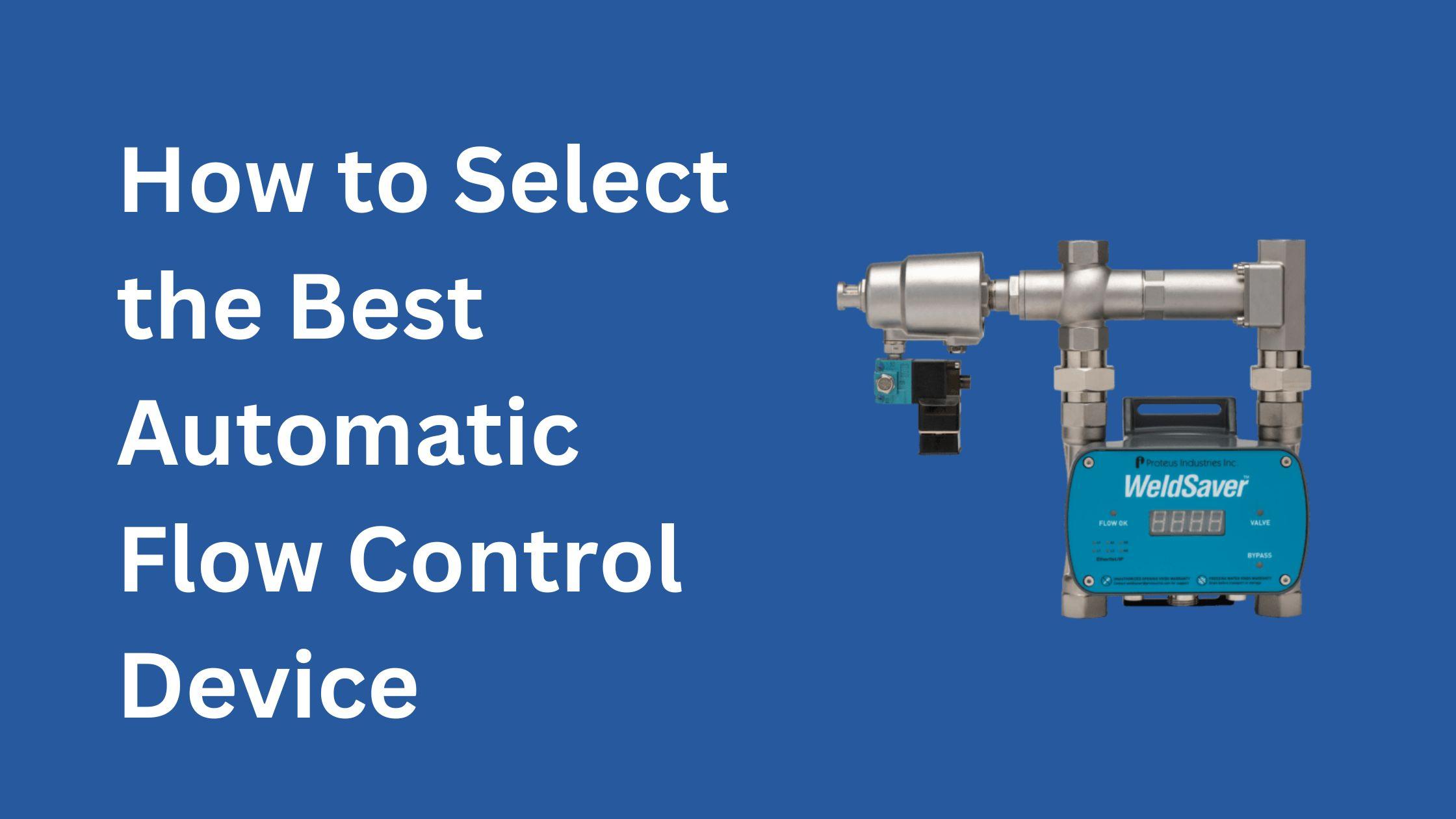Choosing a suitable automatic flow control device is crucial when optimizing fluid management in industrial processes. This equipment ensures precise flow rates and pressure control, maintaining consistency and efficiency. With various devices on the market, it's essential to identify the one that meets your unique needs. In this guide, we'll explore how to select the best automatic flow control device for your application, with insights into key features, specifications, and considerations.
Understanding Automatic Flow Control Devices
An automatic flow control device is engineered to regulate the flow of fluids or gases within a system, maintaining a steady and consistent flow rate. These devices are essential in high-precision applications such as chemical processing, water treatment, and industrial automation. By eliminating the need for manual adjustments, they minimize human error and enhance process efficiency.
Proteus Industries Inc. is a renowned domain name that is known for its high-quality flow control solutions. Their products are engineered for durability and precision, making them a top choice for many industries. Whether you need a device for low-flow or high-flow applications, Proteus Industries Inc. Offers solutions tailored to various industrial requirements.
Key Features of Automatic Flow Control Devices
When selecting an automatic flow control device, it is essential to evaluate its key elements to ensure optimal performance. Some of the primary features to look for include:
- Flow Accuracy: A suitable device should offer high accuracy in maintaining the flow rate. This ensures that processes remain consistent without fluctuations, which can be particularly important in sensitive applications such as chemical dosing or water purification.
- Material Compatibility: Consider the materials used in the device's construction. For instance, stainless steel or corrosion-resistant alloys may be necessary for harsh environments. Proteus Industries Inc. Manufactures devices that can withstand challenging conditions, ensuring long-term reliability.
- Response Time: The speed at which a device adjusts to changes in flow conditions can impact overall system performance. A faster response time ensures that deviations are corrected quickly, maintaining stability in the system.
Choosing the Right Size and Capacity
Size and capacity are critical when selecting an automatic flow control device. The device should handle the flow range of your application without overloading or causing inefficiencies. Here's how to determine the correct specifications:
- Flow Range: Select the minimum and maximum flow rates of your process. Choose a device that operates comfortably within this range. For example, a device designed for high-flow rates may not perform well in low-flow scenarios.
- Pressure Ratings: Pressure compatibility is vital. Ensure the device can handle the maximum pressure of your system without the risk of failure. Proteus Industries Inc. Offers devices that meet various pressure requirements, making it easier to find a compatible model.
- Environmental Conditions: Assess the operating environment, including temperature and humidity levels. Devices designed for specific conditions will perform better and have a longer lifespan.
Benefits of Using an Automatic Flow Control Device
Integrating an automatic flow control device into your system can provide several benefits, such as:
- Enhanced Efficiency: By automating flow control, these devices can minimize waste, reduce energy consumption, and improve the overall efficiency of the process.
- Reduced Maintenance: Automation reduces wear and tear caused by manual adjustments, extending the system's lifespan. Proteus Industries Inc. Provides robust solutions that require minimal upkeep.
- Improved Safety: Consistent flow control minimizes the risk of system failures or accidents, particularly in high-pressure or hazardous environments.
Factors to Consider When Selecting an Automatic Flow Control Device
Before purchasing an automatic flow control device, consider the following factors to ensure that you make the best choice:
- Application Requirements: Different applications have unique requirements, such as flow rates, pressure levels, and chemical compatibility. Match the device's specifications to your needs.
- Quality and Brand Reputation: Choose devices from reputable manufacturers like Proteus Industries Inc. Known for their precision engineering and customer support, they are trusted across various industries.
- Budget Considerations: Although quality devices may have a higher initial cost, their durability and performance often make them more cost-effective.
Installation and Maintenance Tips
To maximize the effectiveness of your automatic flow control device, it's crucial to ensure proper installation and maintenance. Here are some tips to keep in mind:
- Follow Manufacturer Guidelines: Always follow the manufacturer's installation instructions to prevent any damage to the device.
- Regular Calibration: Periodic calibration ensures that the device delivers accurate flow readings.
- Inspect for Wear: Regular inspections can help detect unexpected wear or malfunction, preventing breakdowns.
Conclusion
Selecting the best automatic flow control device is crucial for preserving the efficiency and safety of your industrial processes. By considering factors such as flow accuracy, material compatibility, and the reputation of manufacturers like Proteus Industries Inc., you can make an informed choice that aligns with your needs. Whether upgrading your current system or implementing a new one, investing in a high-quality automatic flow control device will pay off through improved performance and reliability. For more information, you can explore Proteus Industries Inc.'s offerings and find a device that meets your requirements.



